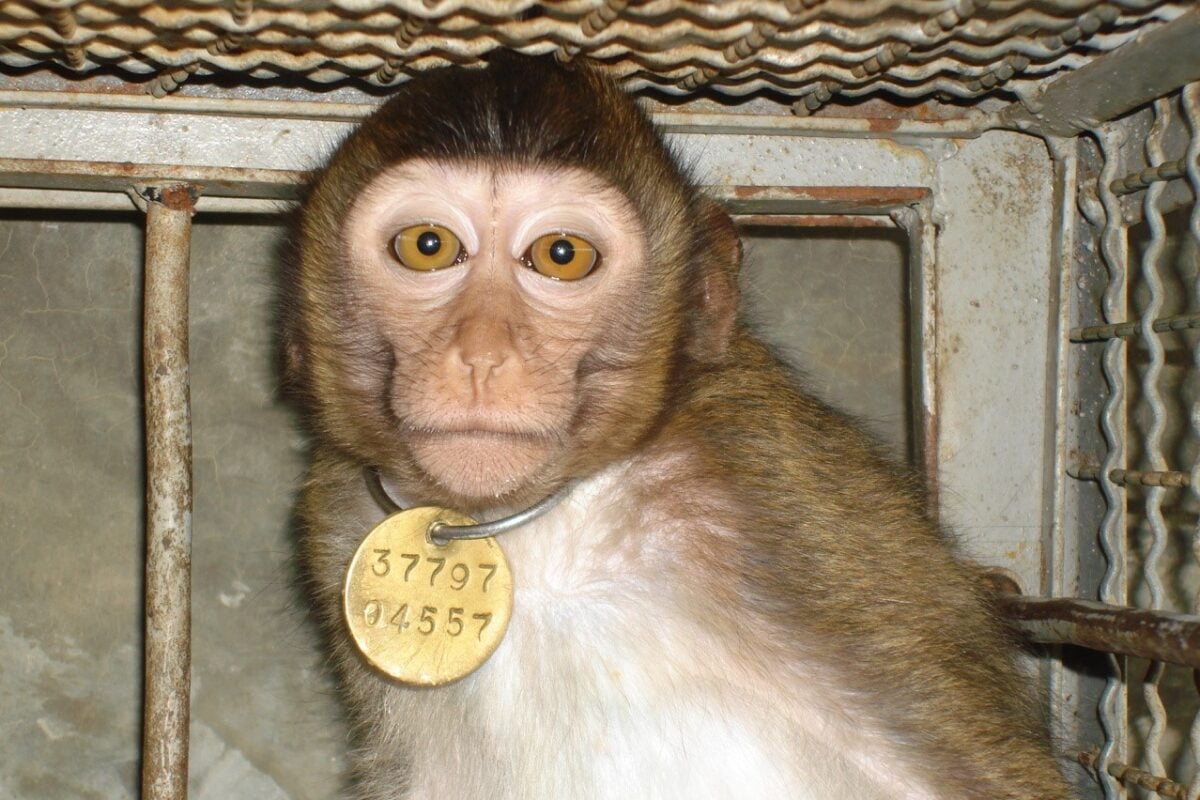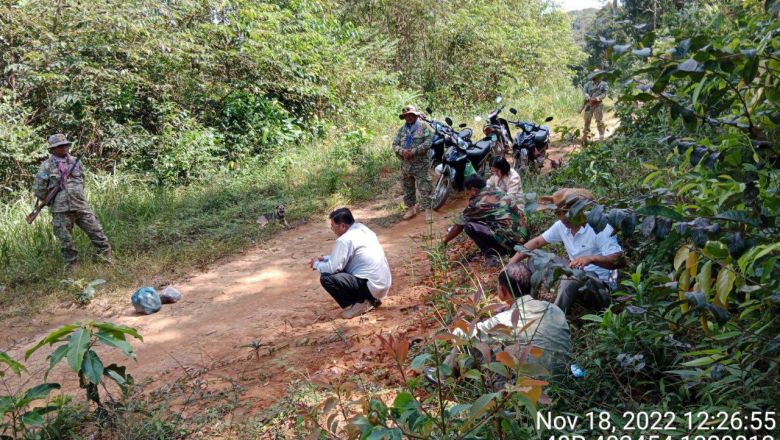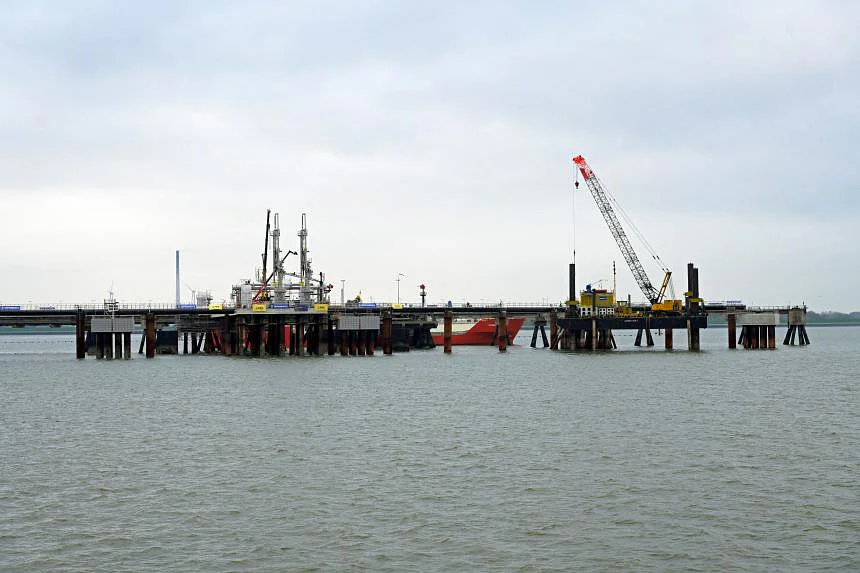PHNOM PENH, CAMBODIA ― Masphal Kry was on his way to an international meeting about trade regulations for endangered species. As the deputy director of wildlife and biodiversity for Cambodia’s Ministry of Agriculture, Forestry and Fisheries, this was part of his job.
But in what conservationists call an “ironic tragedy”, Kry was apprehended in New York and charged with smuggling endangered wild monkeys into the United States.
He was one of eight people charged as part of an “international primate smuggling ring”, which included the director-general of Cambodia’s Forestry Administration, as well as the owner, general manager and four employees of primate supplier Vanny Resources and Bio Research, according to the US Department of Justice.
The alleged smuggling ring was part of a global, billion-dollar wildlife trade industry, and Cambodia has long been under suspicion of trafficking wild macaques through the legal trade of captive-bred monkeys.
Bribes for ministry officials reached tens of thousands of dollars over the years, indicated US court documents, which also noted a hefty donation from Vanny Bio Research to Cambodia’s ruling political party at the request of the now-indicted director-general.
As the Cambodian government remained tight-lipped, conservationists wondered if the charges would spark change. Primatologists fear that ecosystems without macaques could have concerning effects on Southeast Asia’s forests.
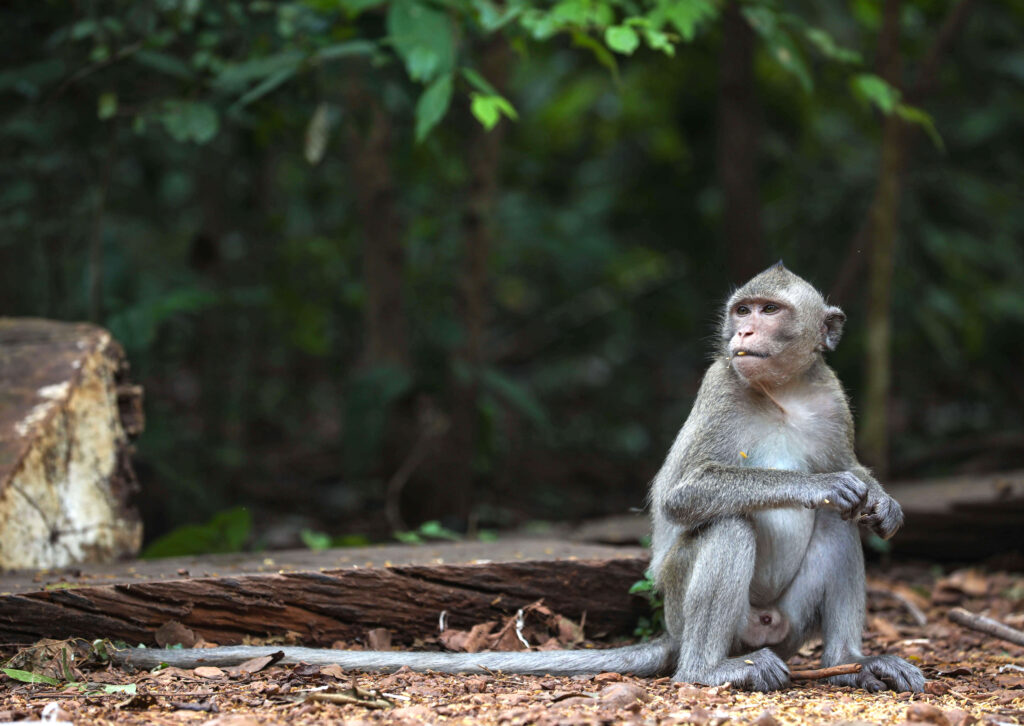
Long-tailed macaques are considered the most traded primate in the world because of their use in laboratory research, which included the development of Covid-19 vaccines.
In July, the macaque was uplisted from ‘vulnerable’ to ‘endangered’ on the Red List of Threatened Species, which listed ‘biological use’ as the primary main threat.
“The practice of illegally taking them from their habitat to end up in a lab is something we need to stop,” said Juan Antonio Gonzalez, a US attorney. “Greed should never come before responsible conservation.”
Cambodia’s exports of long-tailed macaques to the US date back to 2000, and the industry has boomed since then. A United Nations-managed trade database has recorded the export of more than 100,000 macaques, listed as ‘live’ or ‘specimens’, from Cambodia to the US in the following two decades.
Bookending this ongoing trade relationship, which started with the first-recorded export of 200 macaque specimens in 2000, is a Maleth Aero flight that had a cargo of more than 700 live long-tailed macaques and departed Phnom Penh the same day the indictments were announced. The final destination – Washington, DC.
“The fact you have government officials involved surely must raise question marks as to what could be happening in other facilities in Cambodia,” said Sarah Kite, who is part of a primate transportation monitoring network.
“The irony and tragedy for the macaques is that the same person supposed to protect and conserve the species has been indicted for the very opposite – plundering the wild populations.”
Covering the charges
The US Department of Justice announced Kry’s arrest on November 16, also slapping charges against Cambodia’s Forestry Administration Director-General Omaliss Keo.
Indictments were also issued against six Vanny Resources and Bio Research employees; founder and owner James Man Sang Lau, general manager Dickson Lau, deputy general manager Sunny Chan, export manager Raphael Cheung Man, finance officer Sarah Yeung and manager of the Cambodia facilities Hing Ip Chung.
Vanny Bio Research has declined several requests to tour its two breeding facilities in Cambodia. The largest one, which spans 40 hectares, is a stone’s throw away from a provincial Forestry Administration building.
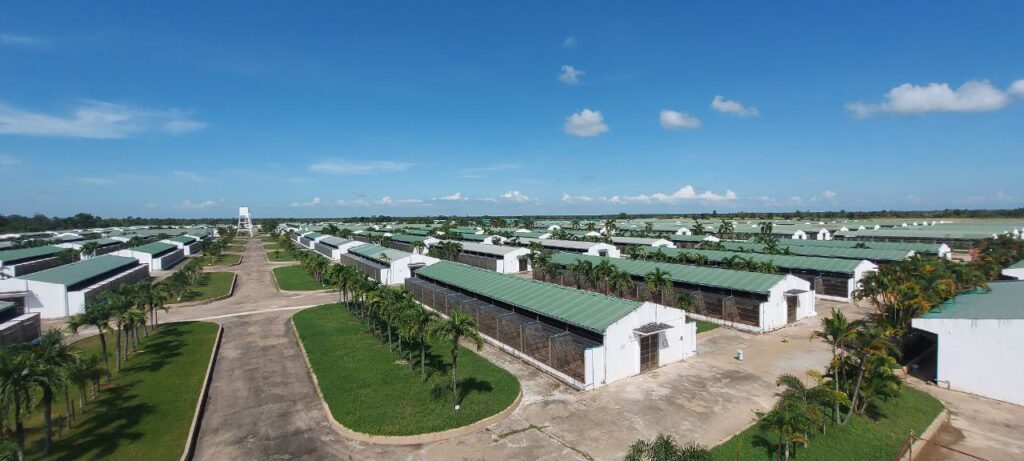
Omaliss did not respond to multiple requests for comment. Similar requests from the reporter about past investigations into the government’s role in macaque breeding, forest developments and reforestation initiatives have been ignored.
In a press release, the Ministry of Agriculture, Forestry and Fisheries wrote it was “surprised and saddened” to hear about Kry’s arrest, and saw eye to eye with conservationists about the “big irony” that he was apprehended on the way to a United Nations-backed meeting about the protection of endangered species.
But the ministry dug its heels in by stating that macaques “are not caught from the wilderness and smuggled out” and that rules and regulations had been respected. The statement ended with a ministry promise to “seek justice for our officials.”
The Minister of Agriculture, Forestry and Fisheries’ Dith Tina did not respond to requests for comment. Thuok Nao, who works with Omaliss at the ministry and the CITES Management Authority of Cambodia, wrote in an email that “the Cambodian government is trying its best to respond to this incident.”
Cambodia’s Ministry of Foreign Affairs and International Cooperation has issued a diplomatic note to the US Embassy in Phnom Penh, requesting clarification about the arrest and “for the release of Mr Kry and for him to stay at the Cambodian Embassy in Washington,” Nao shared.
“The United States is a leader in the global fight against the illicit trade in wildlife and views the trafficking of protected wildlife as a threat to good governance and rule of law while destabilizing our environment,” wrote Stephanie Arzate, a spokesperson for the US Embassy in Phnom Penh.
US Homeland Security Agent Ricky Patel stated in the release that federal agencies would continue “leveraging all of our authorities to stop people and organizations from violating our laws – regardless of where they reside in the world.”
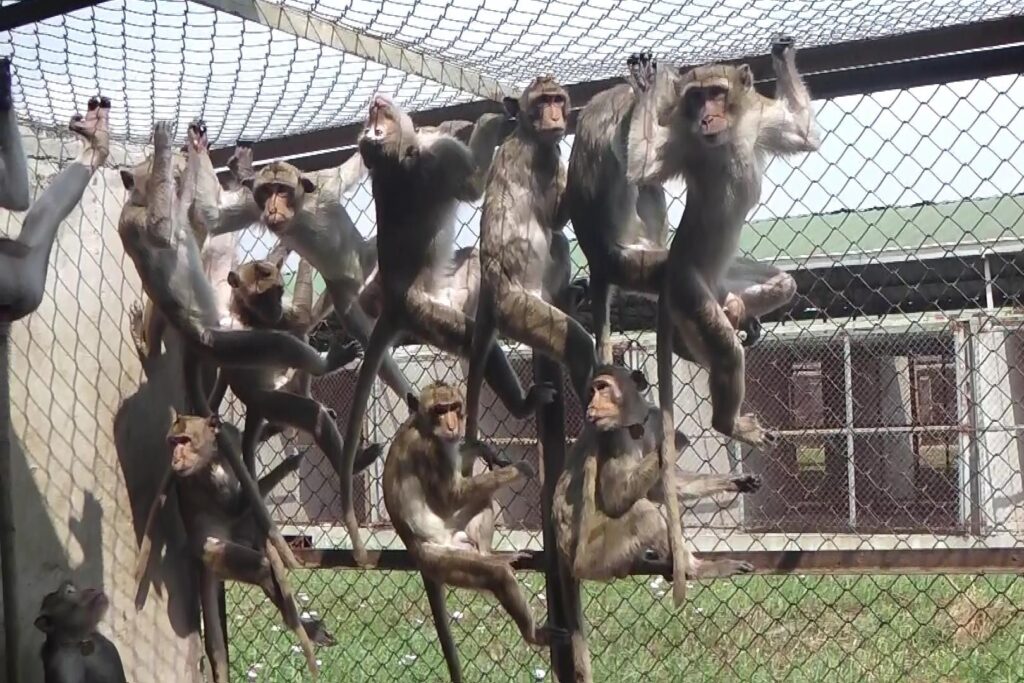
The trade of threatened primates, like long-tailed macaques, is legal on the condition that requirements by the Convention on International Trade of Endangered Species of Wild Fauna and Flora, or CITES, are met.
The backbone of the convention is a permit system, which confirms that rules regarding animal welfare and breeding requirements, among others, are followed.
Nao, who chairs the Cambodian delegation to the 19th Conference of the Parties – the event Kry was traveling to – stated that a meeting had been arranged with the secretary-general of CITES to discuss the situation. He declined to share more.
An indictment in US law is considered an accusation and defendants are innocent unless proven guilty. The court document, filed in the state of Florida, lists dozens of illegal, “overt acts.”
If found guilty, defendants would have violated CITES, according to American and Cambodian laws.
The alleged crimes committed include capturing wild macaques from protected areas in Cambodia, falsifying export permits, as well as offering and accepting bribes, according to the court document.
If found guilty, the defendants face jail time of up to five years for conspiracy, up to 20 years for smuggling and fines of up to US$250,000.
“Wild populations of long-tailed macaques, as well as the health and well-being of the American public, are put at risk when these animals are removed from their natural habitat and illegally sold in the United States and elsewhere,” said Edward Grace of the US Fish and Wildlife Service.
In 2014, the CITES Management Authority in Cambodia submitted a letter to the CITES Secretariat, which is one of the only public documents with information about the then six breeding facilities in the Kingdom.
The letter stated the capture of wild monkeys was outlawed in 2010, following the issuing of permits for nearly 37,800 macaques to be taken from the wild between 2003 and 2009.
The now-indicted Omaliss, who also serves as the chairman of the CITES Scientific Authority for Terrestrial Forest and Wildlife Resources in Cambodia, said in a 2016 article by Khmer Times, a widely considered pro-government outlet, that no license for the capture of wild macaques had been approved since 2010.
“There is no legal approval for any person to do any wild captures. If this is going to happen, it will not be good for supporting conservation of primates,” Omaliss said in the 2016 article. “It’s completely illegal.”
A US warrant has been signed for Omaliss’ arrest, as of early November.
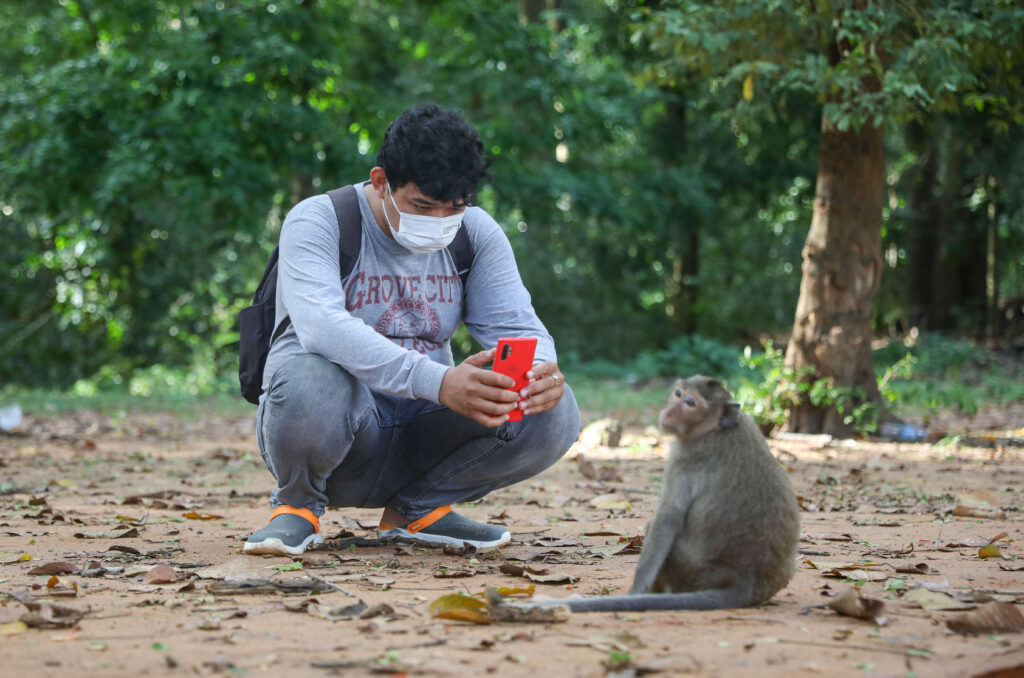
The alleged crimes are said to have begun on an “unknown date”, but started at least as early as December 2017 and continued through January 2022.
About $80,000 is alleged to have changed hands between Vanny Bio Research and ministry officials, according to the 27-page court document, which accuses Omaliss and Kry of overseeing these transactions, as well as organizing the capture and delivery of thousands of wild macaques.
In a specific 2018 example, the court document alleged that Omaliss and Kry agreed to receive cash payments in exchange for taking wild macaques from national parks and protected areas and delivering them to a breeding facility, as well as providing false CITES export permits for 3,000 monkeys.
Each macaque was allegedly worth $220 of ‘tea money’, a colloquialism used in the Kingdom to refer to a bribe. This is a significant sum when compared with Cambodia’s recent-raised minimum wage of about $200 a month for garment workers.
Shuffled among alleged transactions is mention of a 2018 internal accounting document from Vanny Bio Research which reflects a $10,000 donation made to the ruling Cambodian People’s Party at the request of Omaliss.
The donation was made a month before the Kingdom’s general elections – which following the dissolution of a main opposition party in 2017 – fell firmly into the hands of Prime Minister Hun Sen, whose 37-year prime ministership of Cambodia has made him the longest-serving prime minister in Southeast Asia.
Cambodia’s monkey business
The total value of the long-tailed macaque trade was worth about $1.25 billion from 2010 to 2019, with the primate industry in Cambodia valued at $11.3 million in 2017.
Demand for the species skyrocketed after the outbreak of Covid-19. In February, researchers studied global trade statistics and calculated that on average an individual macaque was worth upwards of $2,000.
Cambodia dominated the macaque market after the outbreak. The Kingdom made up 78.5% of the global trade in 2020, according to the CITES trade database, which also recorded that three in every five of those monkeys were exported to the US.
Cambodia traded more than 32,300 macaques worldwide in 2020, nearly doubling the amount of exports from the Kingdom the year before.
“We saw a complete change in the pattern of the global trade in macaques throughout the pandemic,” said Kite, co-founder of animal rights group Action for Primates. “There have always been concerns about the validity of these captive-breeding claims.”
A January report on the status, threats and conservation of the region’s primates stated that “it is likely that many of the recipient research facilities, which do not prioritize animal welfare, are laundering wild-caught primates through legal trade.”
The indictment also accuses the defendants of illegally purchasing long-tailed macaques from black markets in Cambodia and Thailand to bolster the “purported breeding operations.”
Primatologists worry about the effect of removing macaques from their habitats on such a large scale, and are concerned for Southeast Asia’s ecosystems.
Malene Friis Hansen, director of the Long-Tailed Macaque Project, said in a January interview that the species is ecologically vital.
“Macaques are actually both a predator, a prey and a seed disperser. They are a huge part of the ecosystem,” Hansen said.
“We need to consider what species are actually making the world go round, which species are helping to conserve, preserve and regenerate natural areas.”
The Maleth Aero flight landed at Washington-Dulles International Airport the day after the indictments were announced with an estimated cargo of more than 700 long-tailed macaques, bound for laboratories in the state of Maryland.
Kite sighed at the irony of it all.
“The fact these indictments involve not only staff within this one particular company, but also officials within the Cambodian department of forestry, should be a wake-up call to governments and the industry,” Kite said.
“This should raise alarm bells. We don’t know to what extent any other companies or countries may be involved in this.”
This story was produced in partnership with The Pulitzer Center’s Rainforest Journalism Fund and Rainforest Investigations Network. It was first published in Southeast Asia Globe.


